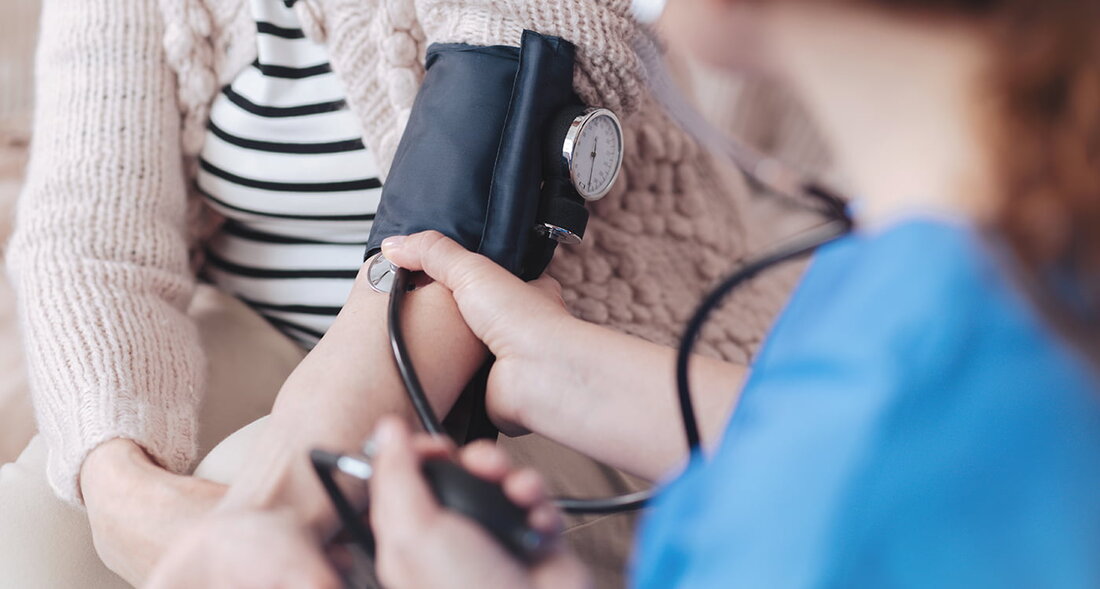What's wrong with high blood pressure?
What is high blood pressure? Hypertension, also known as high blood pressure (HBP), is a serious medical condition. It happens when the force of blood pumping through your arteries is too strong. When your heart beats, it pushes blood through your arteries to the rest of your body. As blood pushes harder against the walls of your arteries, your blood pressure rises. Your blood pressure may be different at different times of the day. It is usually higher when you first wake up, after exercise, or when you are under stress. It's normal to have higher blood pressure for a short time. However, if your blood pressure is high most of the time...

What's wrong with high blood pressure?
What is high blood pressure?
Hypertension, also known as high blood pressure (HBP), is a serious medical condition. It happens when the force of blood pumping through your arteries is too strong. When your heart beats, it pushes blood through your arteries to the rest of your body. As blood pushes harder against the walls of your arteries, your blood pressure rises. Your blood pressure may be different at different times of the day. It is usually higher when you first wake up, after exercise, or when you are under stress.
It's normal to have higher blood pressure for a short time. However, if your blood pressure remains high most of the time, it can lead to serious health problems. You can monitor your blood pressure by using a monitor at home and consulting your doctor. The normal resting value in an adult is approximately 120/80 mm HG.
HBP can be life-threatening if left uncontrolled or undetected. It can lead to heart failure, stroke, heart attack, kidney disease or failure, vision loss, sexual dysfunction, angina, or peripheral artery disease. These conditions are very serious and must be treated. Knowing the signs and symptoms will help you determine when to contact your doctor.
What are the most well-known signs and symptoms of high blood pressure?
-
Headache at the back of the head, which is very unpleasant.
-
weakness that is abnormal.
-
Nervousness, which can be mental and physical restlessness.
-
Dizziness accompanied by tension or fear.
-
Ringing in the ears or a frequent buzzing sound.
-
Sleep loss called insomnia because of brain involvement.
-
Nosebleeds caused by small vessels in the nose that burst due to increased pressure.
-
Shortness of breath, feeling as if your breathing has stopped.
-
Chest pain, especially in the left chest wall or around the shoulder or neck, caused by physical exertion as the heart muscles are deprived of blood and oxygen.
-
Fainting or a feeling of objects moving around you.
-
Changes in vision resulting from changes in the capillary blood vessels in the eyes.
What causes high blood pressure?
-
Family history
-
obesity
-
Excessive alcohol consumption
-
Inactive lifestyle/lack of exercise
-
A diet high in salt and/or fat
-
High intake of caffeine
-
Smoking and stress.
How do you treat? hypertension?
-
Lose weight and watch your waistline – Along with medication, losing weight is one of the most effective ways to control high blood pressure. Carrying too much weight around your waist can increase your risk of high blood pressure. Ask your doctor what your healthy waist should be.
-
Regular exercise – Exercising regularly for at least 30 minutes per day can help lower blood pressure or prevent you from developing high blood pressure if you have pre-hypertension. Walking, jogging, swimming, cycling, and strength training are some of the best exercises to lower blood pressure. Talk to your doctor to create an exercise plan.
-
Eat Healthy – Eating foods rich in whole grains, fruits, vegetables, and low-fat dairy products can help lower your blood pressure. Cut down on the caffeine.
-
Reduce salt intake – the smallest reduction in your salt intake can lower your blood pressure by 2-8 mm Hg. Some people are more sensitive to salt and should reduce their intake even further. This includes African Americans ages 51 and older and those diagnosed with high blood pressure, diabetes or chronic kidney disease.
-
Limit alcohol consumption and quit smoking. When you stop smoking, your blood pressure returns to normal.
-
Reduce Stress – Chronic stress can contribute to HBP. Occasional stress can also be a risk if you frequently turn to unhealthy foods, alcohol, and even smoking.
-
Regular appointments with your doctor can help monitor and treat HBP. You may be prescribed medication if the other options do not lower your blood pressure to a healthy level.
Hypertension is a serious condition and should not be left untreated. Checking your blood pressure regularly and listening to your body can save your life. Be aware of the signs and symptoms of high blood pressure and contact your doctor if any.
This content is not a substitute for professional medical advice, diagnosis or treatment. Always seek the advice of your physician or other qualified health provider if you have any questions regarding a medical condition. Never disregard professional medical advice or delay in seeking it because of something you have read here.
Inspired by Addison Jones

 Suche
Suche
 Mein Konto
Mein Konto
